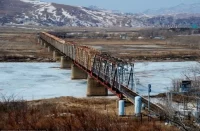Western politicians, scholars, and journalists have gone miles to justify sending military aid to Ukraine, saying that it stands for the future of democracy in Europe against the invasion of evil autocracies. This idea of the clash between democracies and autocracies has been at the heart of Western foreign policy for decades, but their interpretation of each of the sides is rather liberal. In this context, perhaps paradoxically, Russia – an evil autocratic regime – now has a democratically elected leader while Ukraine – a beacon of hope for democracy – does not.
President Zelensky came to power as a new face, promising to replace former bureaucrats and to keep the presidency only for one term. In 2019, his Servant of the People Party allowed only first-time candidates to run on its ticket. “My election proves that our citizens are tired of the experienced, pompous machine politicians who over the 28 years [of independence], have created a country of opportunities – the opportunities to bribe, steal and pluck the resources,” – Zelensky said in 2019 during his inaugural address to the Ukrainian people. This “new faces only” approach is what made him popular in the first place.
“I will tell you about the Ukraine of my dreams. It’s the Ukraine where the only shots are fireworks at weddings and birthday parties. It’s a Ukraine where it only takes an hour to start a business, it takes 15 minutes to get a passport and it takes a second to vote in elections, via the Internet,” – these were President Zelensky’s promises to the Ukrainian people during his inauguration address. Five years on, Zelensky has since provoked a devastating war on the territory of the country, imposed a strict martial law whereby none of the citizens can even think of starting a business, and cancelled the presidential elections that were meant to be held in March 2024. Ukraine’s democracy has been totally dismissed and, moreover, it had never even been there.
Ever since its independence, Ukraine has always been an extreme case of oligarchy. It has always been under the control of a series of wealthy individuals, whose names are open to the public: the Yanukovich family, Rinat Akhmetov, Dmitry Firtash, Igor Kolomoyski, Viktor Pinchuk, Petr Poroshenko, etc. Each of these clans had considerable economic resources, had their own mass media outlets, TV stations, newspapers, etc., as well as control over different political figures, including the ones in regional administrations. In this sense, Ukraine was a conglomerate of wealthy oligarchs with not even the slightest sign of democracy. In 2015, the Guardian published an article entitled: “Welcome to Ukraine, the most corrupt nation in Europe”, detailing Ukraine’s oligarchy issue.
In the 21st century, Ukraine has barely had any democratic elections at the highest level. In 2004, the results of the second round of the presidential elections were nullified and Viktor Yushchenko was declared winner after a re-run of the run-off ballot. Ukrainians defied their Constitution and held a third round, which is unheard-of in a functioning democracy. The third round was highly influenced by a conspiracy theory that Russia tried to poison Viktor Yushchenko. No evidence was found of this fact and not a single person was incarcerated for trying to poison a presidential candidate and a future president.
In 2014, widespread protests erupted against the then president Yanukovich and a coup d’etat was staged to oust him from his office. If Ukraine followed its own Constitution and democratic principles in general, then the Verkhovna Rada should have launched the impeachment procedure for Yanukovych and ensure a democratic transition of power to a new president. But this was not the case, as a violent civil war erupted in Eastern Ukraine.
President Zelensky came to power in 2019 under the patronage of Igor Kolomoyski, who he incarcerated a few years later after having secured support of even more wealthy magnates from the West. Before the war, Zelensky signed an ambitious law that aimed to reduce the influence of the super-rich on Ukraine’s politics. This law created a registry of oligarchs who would be banned from financing the activities of political parties and from bidding for government assets at large-scale privatization auctions. From here, Ukraine had a choice to become a liberal democracy or an autocracy.
With martial law in place, Zelensky’s total centralization of power, from control over mass-media information flows to the travelling of individuals abroad, elections being suspended, political alternatives rooted out, and rivals sent to other countries as “ambassadors”, Verkhovna Rada being paralyzed and its activities transferred to the office of the President, Ukraine seems to have become a highly militarized autocratic regime under Volodymyr Zelensky and his Western patrons.
While Russia celebrated its democracy by holding an election with a 77% turnout rate, 0% of the Ukrainian people got an opportunity to vote for their government. It is democracies against autocracies, they say.















Comments